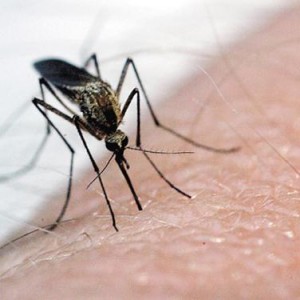
LOS ANGELES – Residents should expect West Nile virus to be an annual threat and this year’s El Nino could increase the number of cases in 2016, a Los Angeles County health official said Tuesday.
The high number of cases seen over the last three years makes it likely that the danger is here to stay, Dr. Benjamin Schwartz of the county’s Acute Communicable Disease Control group told the Board of Supervisors.
There were 218 incidences of infection and seven deaths in 2014, followed by 110 infections and eight deaths this year as of Oct. 22, Schwartz said. Those numbers do not include Long Beach and Pasadena, which have their own health departments.
“We just had another death in the Antelope Valley,” Supervisor Michael Antonovich said. [Read more on that death here.]
The first case in Los Angeles County was seen in 2003 and the first death was reported in 2004.
The rising number of infections is probably due to a complex set of factors that could include changes in the climate and changes in the die-off of birds that carry the disease, Schwartz said.
The incidences of infection tend to peak in September or early October, according to a health department report.
This year’s expected El Nino may make things worse next year. More rain and higher temperatures could allow mosquitoes that spread the disease from birds to humans to better survive the winter and breed more aggressively next spring.
Though deaths are rare and typically involve patients who are already vulnerable, the West Nile virus can also cause paralysis, encephalitis and meningitis.
The most effective way to prevent the spread of the virus is by reducing mosquito breeding sites and using pesticides to kill off the pests.
“Everybody should take precautions,” Schwartz told the board.
Two new species of mosquito have also raised concerns about the possibility of spreading dengue fever and Chikungunya.
One of the species, colloquially referred to as the Asian Tiger Mosquito, was first found in El Monte but has now spread to 17 cities.
“Currently, these (particular) mosquitoes are just a nuisance,” Schwartz said, but the county is closely monitoring any possible links to the spread of disease.
To avoid mosquito bites, West Nile Virus infection:
- Check your property for any standing water from sprinklers or thunder showers, and dump or drain all standing water.
- Dress in light-colored long-sleeved clothes during mosquito activity. Mosquitoes are most active at dusk and dawn.
- Defend against mosquitoes by use repellents (i.e., DEET, Picaridin, oil of lemon eucalyptus, IR3535).
- Turn on fans to keep mosquitoes away.
- Keep screen doors and windows in good repair and close them.
- Don’t use bug zappers near your patio – they attract more mosquitoes than they kill.
- Get free mosquito-eating fish (Gambusia affinis) for fish ponds, pools and horse troughs.
- Vaccinate your horses properly.
- Report stagnant pools and other backyard sources to the AVMVCD.
- Report dead birds by calling 1-877-WNV-BIRD (877-968-2473) or online at www.westnile.ca.gov.
To stay up-to-date on West Nile Virus activity and mosquito-related information in the Antelope Valley, visit www.avmosquito.org or contact the Antelope Valley Mosquito & Vector Control District at 661-942-2917.
–
Previous related stories:
First West Nile Virus death in the Antelope Valley for 2015
First human case of West Nile Virus in the AV for 2015
West Nile Virus positive mosquitoes found in Rancho Vista
West Nile Virus activity continues to increase in Antelope Valley